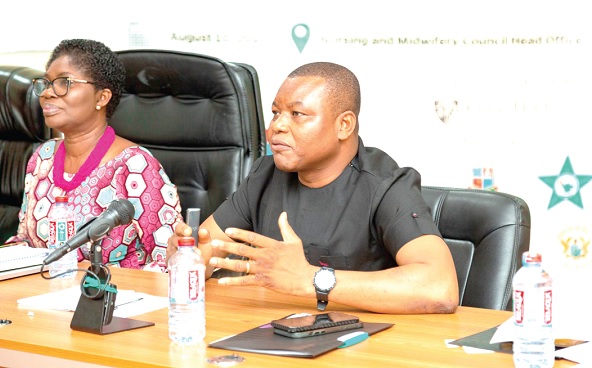
Calls for Health Workforce Migration Policy grow louder
The migration of skilled nurses and midwives from Ghana has become a pressing issue, with an estimated 3,000 professional nurses leaving the country in the first quarter of 2022.
Advertisement
The Ghana Registered Nurses and Midwives Association (GRNMA) reports that approximately 500 nurses leave the country for developed countries every month, citing wage disparities and suboptimal working conditions as key factors.
In response to this trend, Health Workforce Lead at the World Health Organisation (W.H.O) Africa Region, Dr James Avoka Asamani, has suggested the development of a health workforce migration policy to curb the exportation of trained healthcare professionals.
At a recent round-table discussion on ‘Ethically Managing the Migration and Recruitment of Nurses in Ghana,’ stakeholders proposed ways for the government and other organisations to address the issue.
Discussion
The discussion included representatives from the GRNMA, Nursing and Midwifery Council of Ghana (N&MC), the International Council of Nurses (ICN), Commission on Graduates of Foreign Nursing Schools (CGFNS) International, Ghana Nurses Association UK, Johns Hopkins School of Nursing, and the Ghanaian-Diaspora Nursing Alliance (G-DNA).
Dr Asamani called for a national health workforce migration policy to establish processes for managing the migration of healthcare professionals.
He also proposed reinforcing the implementation of the WHO Global Code of Practice on International Recruitment of Health Personnel, which outlines conditions for sustainable and localised recruitment.
Additionally, Dr Asamani suggested increasing nurse training beyond domestic needs to create strategic reserves for skills export and improving nurse income by at least GH¢3,000 to bridge retention gaps.
Moderating the event, Prof. Yvonne Commodore-Mensah, President of G-DNA, emphasised the importance of empowering nurses through education and enabling them to harness their skills with confidence.
The stakeholders agreed that addressing migration through a policy conversation involving all stakeholders was necessary to address this pressing issue.




